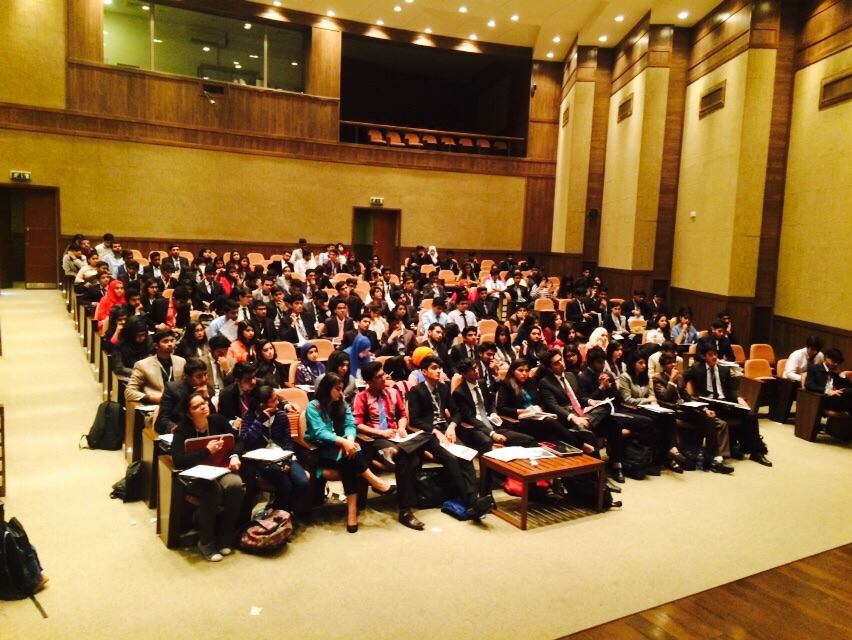We all have made some tough decisions regarding education in our lives. More often than not, I come across students who are extremely unhappy with their course subjects, and universities. My usual question is, “If you are not happy, why are you doing this?” And the answers that follow are pretty much along the same lines. “I didn’t know about any other university offering the course of my choice”, “Nobody was there to help me out”, “I was shocked by tuition fees and I didn’t know about need-based scholarships.”
In short, we are studying subjects we don’t like and expecting everything to turn out miraculously good after we, somehow, graduate from high school. Obviously it will not. With the current employment numbers and remarkably low opportunities for youth, job-seeking is getting even more difficult.
To address the root cause of the problem, there is an educational counselling platform with the name Counselling Pakistan which, as the name suggests, is aiming to help students get admissions at different Pakistani and international universities. The brainchild of Saad Jangda, a student at University of Michigan, Counselling Pakistan was born as a result of a bad decision to move to Canada for higher studies. Saad realized that he was not interested in what the university had to offer.
 After having a bitter experience and wasting a precious year, he thought that there should be a platform for students in Pakistan to connect with Pakistanis studying in international colleges and universities, for these people have practical experience and in-depth knowledge of studying abroad. Instantly, he reached out to his friends in Germany and UK, Abdul Ahad Shabbir and Hamza Jawaid, who bought the idea and chipped in. Initially, these three friends engaged alumni to do sessions at different universities. But most recently they have launched a platform on their official website to prepare for international admissions and getting help from students currently studying abroad.
After having a bitter experience and wasting a precious year, he thought that there should be a platform for students in Pakistan to connect with Pakistanis studying in international colleges and universities, for these people have practical experience and in-depth knowledge of studying abroad. Instantly, he reached out to his friends in Germany and UK, Abdul Ahad Shabbir and Hamza Jawaid, who bought the idea and chipped in. Initially, these three friends engaged alumni to do sessions at different universities. But most recently they have launched a platform on their official website to prepare for international admissions and getting help from students currently studying abroad.
The signup process asks for some personal and educational related questions like name, degree and region you are opting for. After the signup process, you are assigned a ‘dost’ (counsellor) who can help you out with your admission preparations. In addition to that, the platform can be taken as a tool to prepare for online admissions, as it has a to-do list tracker type functionality. Personally, I didn’t like the onboarding process, it could have been done in lesser clicks and pages. Nevertheless, better than many websites with tons of requirements for sign up!
I checked this platform with ‘shown interest’ to go to US for MBA. In a few minutes time, I received an email that there are two people who can help me out with my applications. I even discussed the opportunity with one ‘dost’ in detail. The ‘dost’ was very professional and helpful.
In 30 minutes, I had a road map and universities I should be opting for.
Without this platform, I couldn’t think of any other way to reach individuals abroad. Maybe, through personal network or connections. For example, you want to go to Princeton University and you really want to meet someone from Pakistan studying there. Either you will ask around or search on the internet. Now with Counselling Pakistan this issue is resolved. The plus point is that people on the platform are genuinely interested in helping you out.
Counselling Pakistan has almost 40 team members mainly ‘dosts’, venture partners and developers. They have helped over 4000 students and are planning to expand their scope of work to top universities in Pakistan. Bad advice is freely available everywhere and the most interesting thing about it is that it can come from anyone.
“Dosts are interviewed, selected and then properly trained.” Saad said “Dosts do recommend colleges but on a case to case basis. Based on the knowledge/requirement of the student, they either help them with existing applications or recommend them ideal colleges if they have no knowledge of where they should be looking!”
Over 20,000 students visit this platform in peak months to seek help and guidance. With the strategy to expand in Pakistan by having universities on board and launching a public forum to discuss education, this startup is hoping to reach millions of students in schools, colleges and universities.
Saad and his team are currently focused on user growth and sticky users. Business model and revenue generation are not one of the highest priorities. But he mentioned that they will keep on thinking about it, but in anyway, the platform will stay free for students.
“We are sharply focused on counselling youth and helping them get to better colleges and universities.”
All in all, Counselling Pakistan is a great effort, something which can become a hub for students in universities and colleges in Pakistan. With the right strategy and platform offerings, they can keep the users glued and play an active role in the life of individuals looking to study abroad and give back to the country.
Edited by Maryam Dodhy












